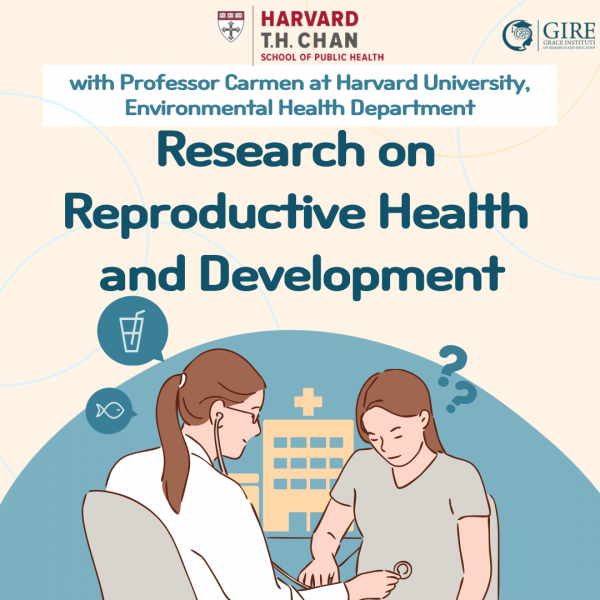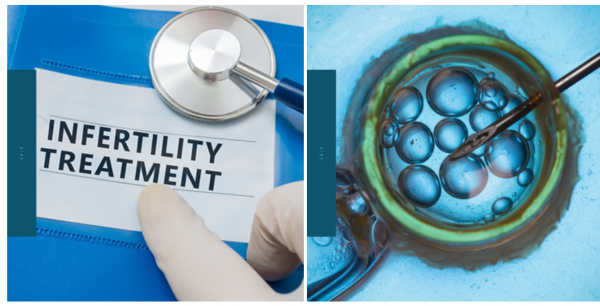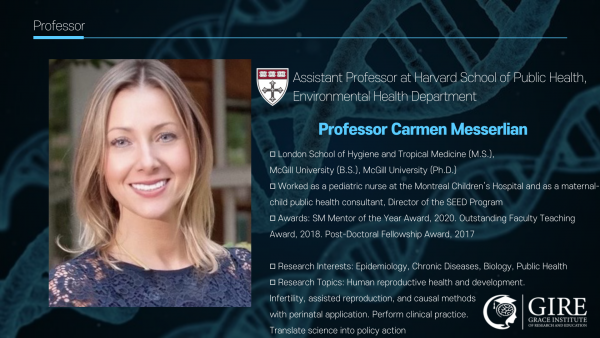|

Hello, GIRE!
Reproductive health, defined as the use of safe contraception, access to health care during pregnancy and childbirth, and newborn (infant) health care, is an important human right. However, according to the World Health Organization (WHO, 2023), one in six people worldwide has experienced infertility. The goal of reproductive health research is to improve health and quality of life by addressing issues such as fertility decline and reducing maternal and child morbidity and mortality.
In GIRE, we'll be talking with Professor Carmen of Environmental Health at the Harvard T.H. Chan School of Public Health, about how to do this professionally.
[What is infertility?]

Fertility is an individual's ability to conceive a child. In contrast, infertility is a condition of the male or female reproductive system in which pregnancy does not occur after 12 months of regular, unprotected sex.

According to the Centers for Disease Control and Prevention, 35% of infertile couples do not become pregnant due to factors in both the woman and the man.
Infertility can be primary or secondary.
Primary infertility is when you've never had a successful pregnancy before, while secondary infertility is when you've had at least one successful pregnancy before.
[Causes of infertility]
In women, common causes include problems with ovarian function, blocked fallopian tubes, and uterine abnormalities such as fibroids. In men, it can be caused by problems with testicular or ejaculatory function, hormonal or genetic disorders. 
Other factors that can contribute to infertility in both men and women include age, smoking, alcohol and drug use, certain medications, cancer treatment, and certain diseases.
[Fertility treatments and limitations]

<Figure - Assisted Reproductive Technologies (ART), In Vitro Fertilization (IVF)>
Women or men who are having difficulty conceiving should be referred to a gynecologist to determine the cause, hear about treatments, and discuss options such as artificial insemination and assisted reproduction. Infertility treatment includes the prevention, diagnosis, and treatment of infertility.
However, equitable and accessible fertility care remains a challenge in most countries, especially in low- and middle-income countries. Fertility treatment is rarely prioritized in national universal health coverage and is rarely covered through public health financing. In addition, lack of personnel, equipment, facilities, and cost of treatment are major barriers to fertility treatment.
While Assisted Reproductive Technologies (ART) have been used for over 30 years and interventions such as In Vitro Fertilization (IVF) have resulted in the birth of over 5 million children worldwide, these technologies are not available in most countries, especially low- and middle-income countries.
[Why fertility treatment is important]

Every human being has the right to the highest attainable standard of physical and mental health, based on the "Right to Health". This also means that individuals and couples have the right to decide how many, when, and how far apart they want to have children. However, infertility deprives people of this essential human right and the right to start a family.
A wide range of people may need fertility care and fertility treatment services, including heterosexual couples, same-sex partners, older adults, and people with certain medical conditions such as HIV. However, access to fertility treatment is unequal for the poor, unmarried, uneducated, unemployed, and marginalized.
Addressing infertility can also mitigate gender inequality. Both women and men can experience infertility, but regardless, women are often perceived as suffering from infertility. Infertility has a significant social impact on the lives of infertile couples, with women in particular frequently experiencing violence, divorce, social stigma, emotional stress, depression, anxiety, and low self-esteem.
In some settings, there is a high social value placed on childbearing, so women and men who are pressured to prove their fertility at a young age may not use contraception for fear of infertility. In these situations, education and awareness-raising interventions are needed to improve understanding of fertility and infertility.
[Research in human reproductive health and development: Prof. Carmen Messerlian]

GIRE is supporting a research experience with Prof. Carmen Messerlian, Department of Environmental Health, Harvard T.H. Chan School of Public Health, to delve deeper into 'Human Reproductive Health and Development'.
▶Research interests: #epidemiology #infectious diseases #chronic diseases #biology #public health ▶Recommended students: Students who are interested in medicine and want to go to medical school. Students who want to learn about human reproductive health and gynecology in depth.
These are the topics of Carmen's current research.
▶Racial and Ethnic Disparities in Phthalate Exposure and Preterm Birth: A Pooled Study of Sixteen US Cohorts (2023) ▶Exposure to Trihalomethanes and Bone Mineral Density in US Adolescents: A Cross-Sectional Study (NHANES) (2023) ▶Human Reproduction Across the Life Course and the Total Environment (2023)
With GIRE, high school students receive direct support from consultants and conduct unprecedented research in research areas they are curious about, acquiring specialized knowledge, discovering new facts, and considering ways to utilize the research results. |
 Click here to book
Click here to book